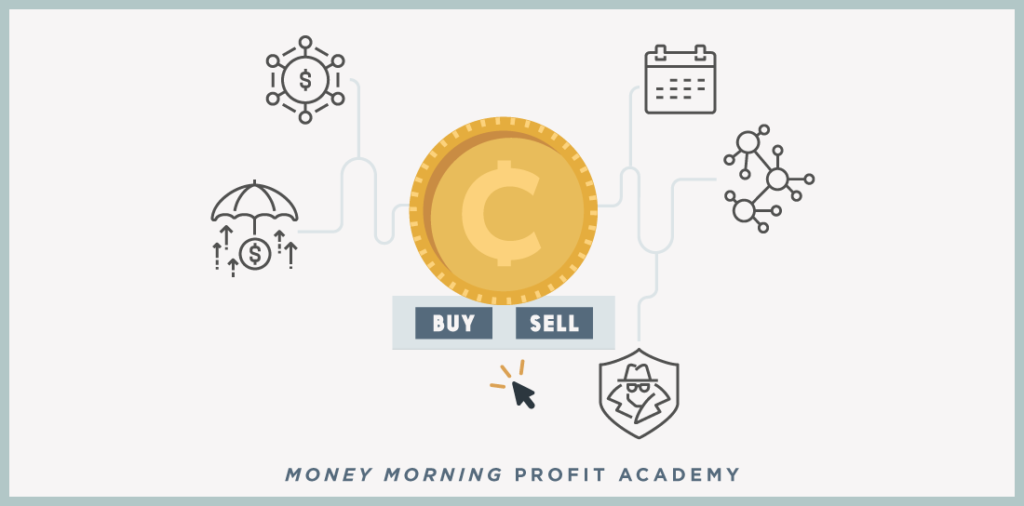
Blockchain technology and cryptocurrency are hot topics that often make headlines. However, it's hard to ignore the risks involved when investing in this relatively new form of currency.
While the extreme volatility of cryptocurrency may discourage some people from investing their money, others are keen to embrace and profit from this highly speculative market.
For anyone considering a cryptocurrency investment, it's important to be aware of the most common cryptocurrency risks.
In this lesson, we'll go over five of the most prevalent threats to ensure you have the knowledge you need to proceed wisely with your investments.
Risk #1: Volatility
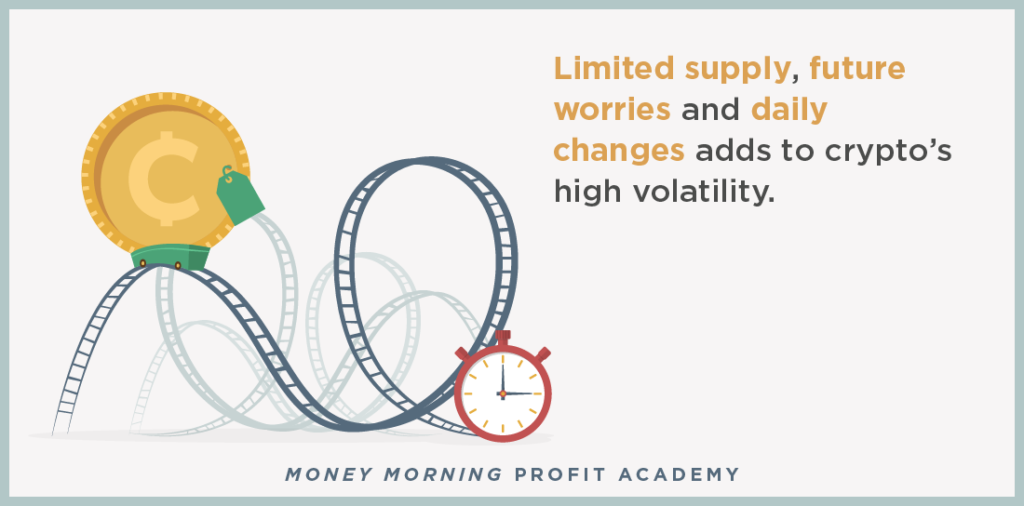
One of the most significant cryptocurrency risks is volatility. There are several reasons behind this. Without regulation and the lack of a governing authority or central bank, there is no way to ease this volatility. A few of the reasons for crypto's volatility include:
- Limited supply. The coding behind Bitcoin, for example, means there are only 21 million Bitcoins. The limited supply gives crypto a scarcity value, which forces the price of digital currencies up.
- Future worries. Concerns over crypto's future performance and investors' general perceptions regarding the value of digital currencies all contribute to the highs and lows associated with crypto.
- Daily changes. Digital currencies are subject to day-to-day changes due to new announcements or news. For instance, when Telsa stated it would no longer accept Bitcoin, the value of Bitcoin fell considerably.
There is no way to avoid volatility. However, investors can hedge against the swings in value by diversifying their portfolios, investing in stable coins, and staying updated on cryptocurrency news.
Risk #2: Lack of Regulation
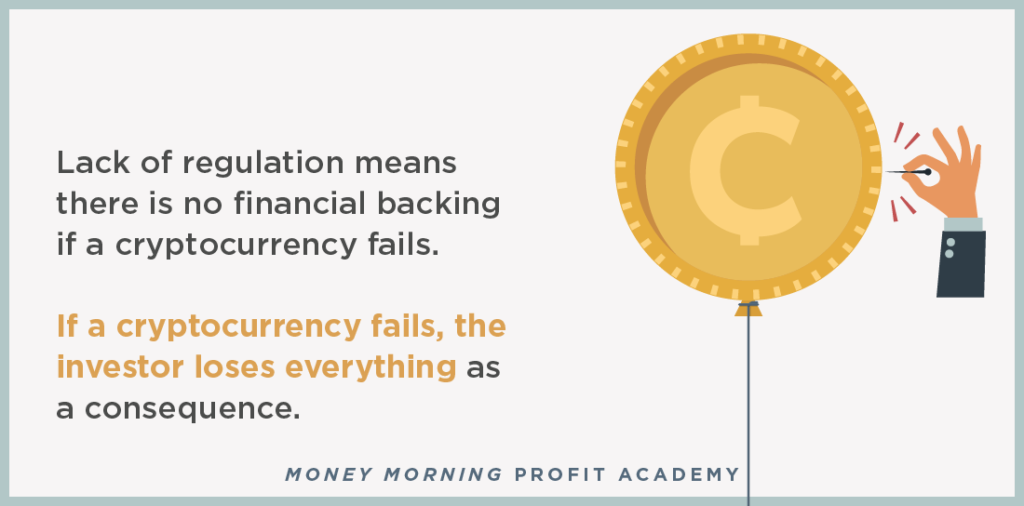
One of the biggest cryptocurrency risks is a lack of regulation. Cryptocurrencies are still relatively new, and governments don't regulate them in the same way they regulate other commodities like the dollar or gold.
Lack of regulation means there is no financial backing if a cryptocurrency fails. If a cryptocurrency fails, the investor loses everything as a consequence.
Additionally, there is no way of governing against exchanges that may indulge in questionable activities like market manipulation.
This lack of regulation contributes to the volatility risk discussed previously. For investors who prefer greater certainty, there are some regulated platforms in existence, such as Gemini.
Risk #3: Loss or Destruction of the Private Key
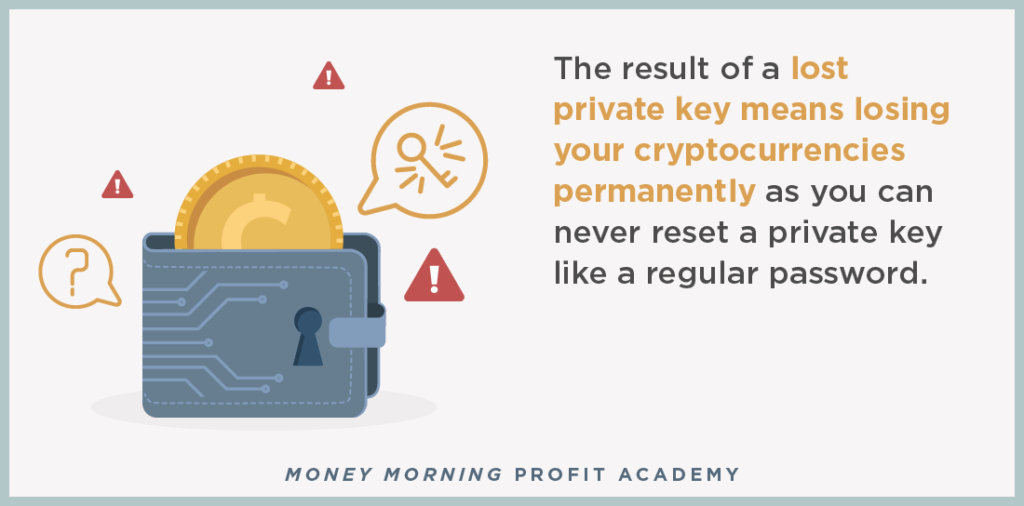
Accessing cryptocurrencies requires a public and private key so the owner can open their digital wallets. Private keys consist of letters and numbers that are related to your cryptocurrency-linked email address. If a user forgets their private key, it's lost, or it's compromised, it results in the user being locked out, often permanently. Investors cannot simply reset a private key in the same way they would a regular password. The result of a lost key may mean losing your cryptocurrencies altogether.
San Francisco-based programmer Stefan Thomas found this out to his detriment when he could not access his 7002 bitcoins, worth $220 million. Unfortunately, Thomas's case is far from the only story like this. However, there are security services that store your private key and specialist crypto hunters for hire that assist with cryptocurrency recovery.
Risk #4: Hacking
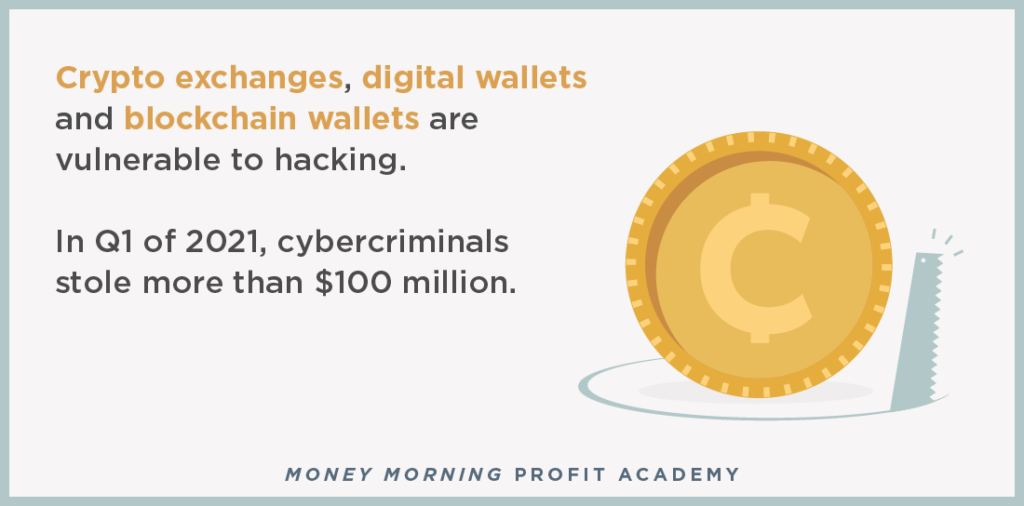
As crypto becomes more common, so does crypto hacking. In Q1 of 2021, cybercriminals stole more than $100 million. Exchanges are common targets because of the vast amounts of cryptocurrencies they hold, but digital wallets and blockchain wallets are vulnerable too.
Blockchain, which is the technology behind cryptocurrencies, is highly secure. However, there are no guarantees of total security, and hackers take advantage of vulnerabilities on trading platforms.
Hackers also target investors on an individual basis through malware or phishing to gain access to private keys.
For better protection:
- Update your passwords regularly and use two-factor authentication
- Download any recommended security patches
- Use online and offline digital wallets
- Only trade with reputable sites with a proven reputation
Risk #5: Market Manipulation
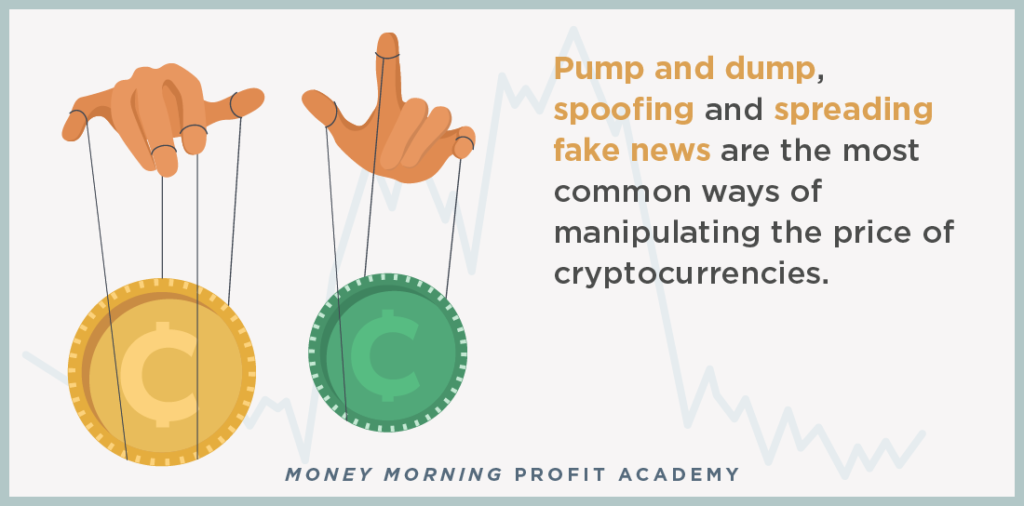
Some experts believe there are signs people are manipulating the price of cryptocurrencies to make it appear as if there is more demand than supply because they want it to seem like crypto has increased in value.
The market can be manipulated in several ways, including:
- Pump and Dump Groups. Pump and dump schemes are the most common form of cryptocurrency manipulation, where fraudsters artificially inflate the price of a stock through misleading statements or misrepresentations to their customers to sell at an inflated price, then stop buying.
- Fake News. Fake news is an intentional attempt to spread misinformation, mistaken for news in social media posts or articles.
- Spoofing. Criminals create fake orders in an attempt to manipulate prices.
Market manipulation may be difficult to pin down, but it presents serious cryptocurrency risks that imperil the market.
Risk #6: Uncertain Future
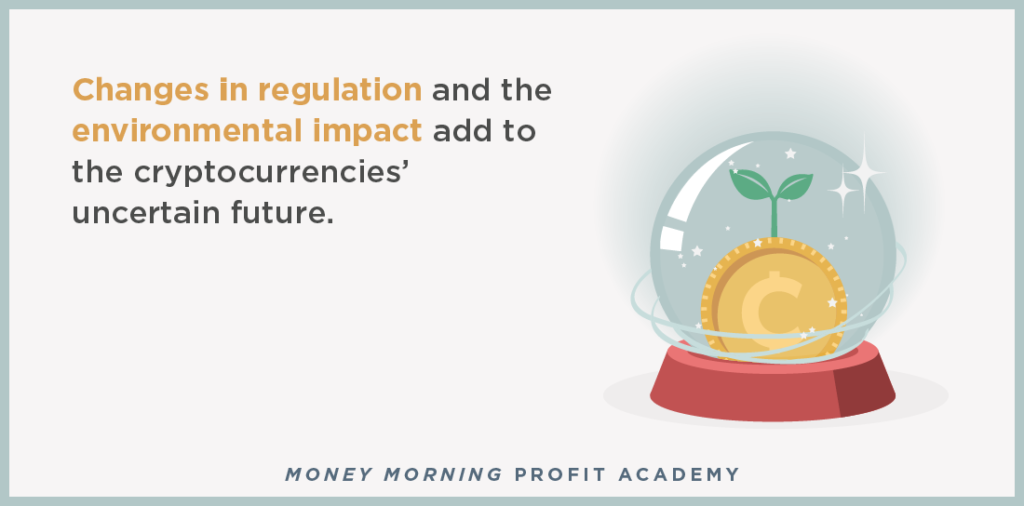
While current cryptocurrency risks are likely to continue, there is also the risk of an uncertain future to consider. Changes in regulation and the environment are among the top concerns.
Although many call for greater regulation, it's uncertain what this could mean for cryptocurrencies if additional regulation is enacted. It may cause prices to increase or drop in value.
The environmental impact is another issue surrounding the sector. Cyber currencies burn large volumes of fossil fuels, and there is a greater urgency to reduce their production due to climate change.
How Much Do You Know About Cryptocurrency Risks?
Although investors may not be able to avoid all the inherent cryptocurrency risks, you can use your market knowledge to limit your exposure to those risks. Additionally, you can take action to reduce your risks by tightening security or storing your private key with a specialist service.
Now that you've completed the cryptocurrency module of the Money Morning Profit Academy, let's see what you learned. Take the end-of-module cryptocurrency quiz to assess what you know.


